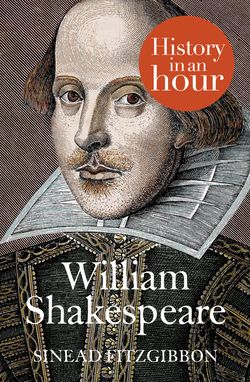Читать книгу William Shakespeare: History in an Hour - Sinead Fitzgibbon - Страница 5
Setting the Scene
ОглавлениеTo understand the man, you must know what was happening in the world when he was twenty.
While this maxim, thought to be coined by the French political and military leader, Napoleon Bonaparte, can be applied to the study of almost any historical figure, it is especially true when considering the life and work of England’s revered national poet, William Shakespeare. The world into which Shakespeare was born was one characterized by unprecedented political, religious and cultural upheaval, all of which would have a profound impact on the man and the poetic and dramatic canon he would produce.
Just eighteen months before Shakespeare’s birth, England’s political system had been plunged into turmoil when Elizabeth I, who had been on the throne for just over four years, contracted smallpox. Although she survived, and would go on to reign for a further forty years, England’s political future at this stage seemed far from secure. The queen’s unmarried status and childlessness compounded matters. Although ultimately she would choose to remain unfettered by matrimonial ties, throughout the 1560s and 1570s fears abounded that English sovereignty would be jeopardized should she choose to marry a suitor from the French or Spanish royal families. This bred an atmosphere of strident patriotism mixed with a suspicious fascination about the workings of foreign courts.
Elizabeth’s ascension to the English throne in 1558 also precipitated a return to the Protestant Reformation, which had first been introduced to the country by her father, Henry VIII, and which had been briefly interrupted during the short-lived reign of Elizabeth’s predecessor and half-sister, the staunchly Catholic Mary I. This swinging of the religious pendulum from Protestantism to Catholicism and back again had inevitably caused grievous and injurious hostility between the two faiths. Tensions escalated still further when Elizabeth’s Parliament passed the ‘Act to Retain the Queen’s Majesty’s Subjects in their due Obedience’ in 1581 declaring the practice of Catholicism to be a treasonable, and therefore capital, offence. The central Christian tenet of ‘love thy neighbour’, common to both Catholicism and Protestantism, was all but forgotten as an insidious atmosphere of mutual suspicion and mistrust took hold across the land.
The sixteenth century, the world which greeted Shakespeare, was also notable for being a time of unparalleled discovery and invention which brought about an unprecedented expansion of horizons, both literally and figuratively. The previous century had seen the discovery of the Americas by Spanish explorers and the first circumnavigation of the globe by a Portuguese, Ferdinand Magellan. By the time of Shakespeare’s birth, the English were striving to emulate the successes of their European counterparts, efforts which would culminate in Sir Francis Drake successfully completing the second circumnavigation of the world on his galleon, The Golden Hind, in 1580. These discoveries and explorations had shattered many long-held ‘certainties’, including the belief that we lived in a flat world which was dominated by the European landmass, thus marking a profound shift in mankind’s knowledge and understanding of the world.
Elizabeth I c. 1588
It makes sense that this expansion of human consciousness would not remain confined to the realms of geography and science. It would ultimately spill over into the arts, ushering in a period of hitherto unmatched creativity, which became known as the English Renaissance. Music, architecture and the visual arts would all benefit from this explosion of innovation, but by far the most important developments would be seen in the literary – and especially the dramatic – arts.
Once the preserve of the royal court and aristocratic houses, the early Elizabethan era saw the democratization of drama, which would bring plays to the masses for the first time. Initially staged in the inns and bear-baiting arenas of London’s liberties, demand for this new form of entertainment was such that a purpose-built theatre called The Red Lion (the first to be constructed in London since Roman times) was soon completed in 1567. This was followed by The Theatre in 1576 and The Curtain a year later. Soon, aspiring playwrights were flocking to London in the hope of taking advantage of this revolution in mass entertainment. Thus, the stage was set for the emergence of the greatest English dramatist of them all, William Shakespeare.
